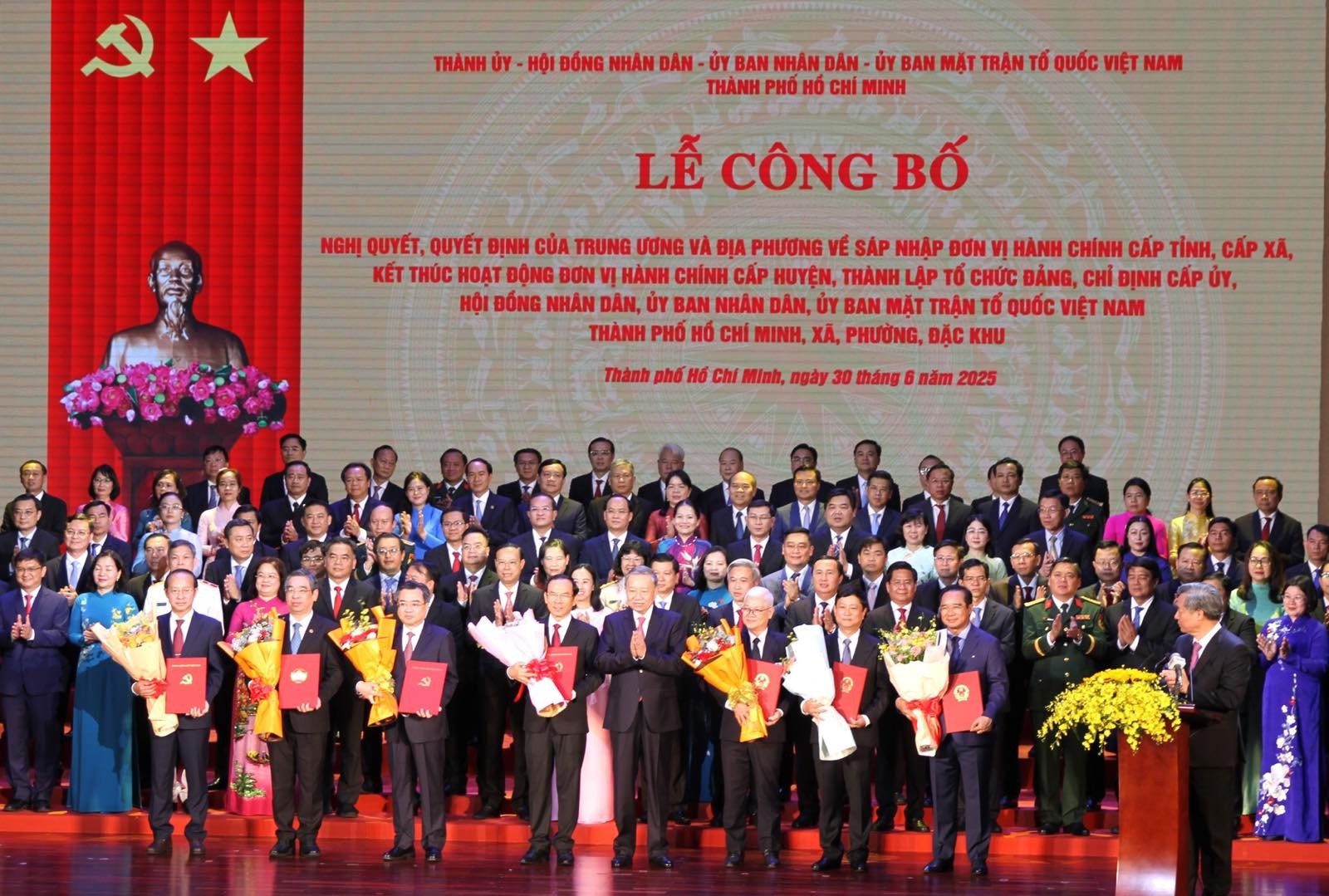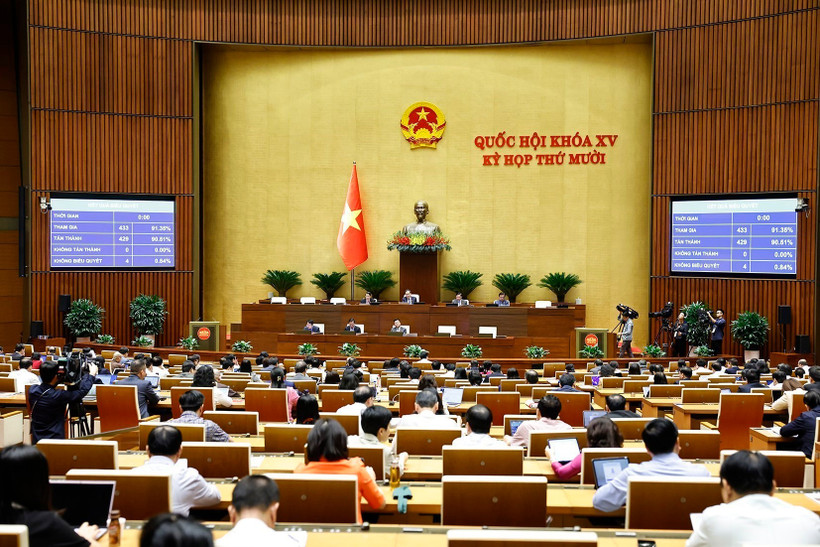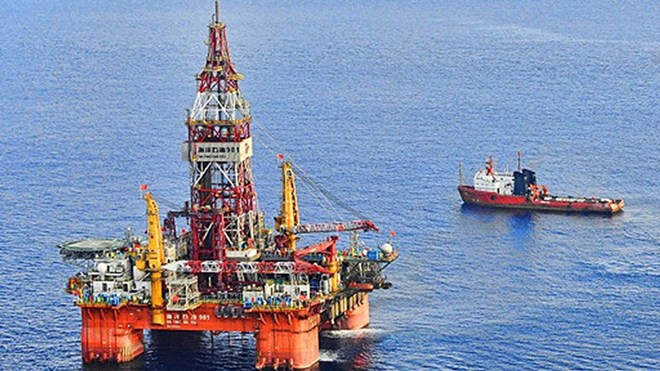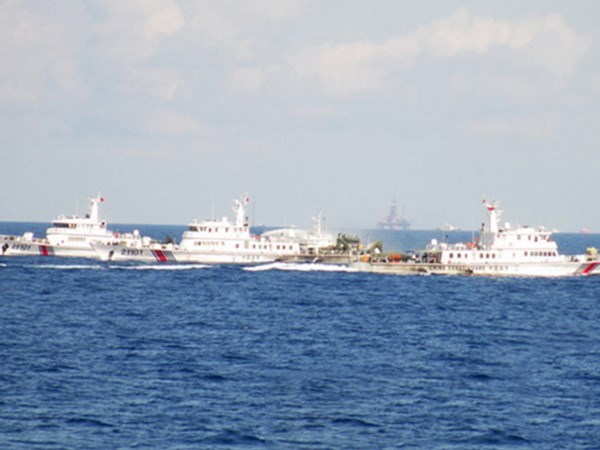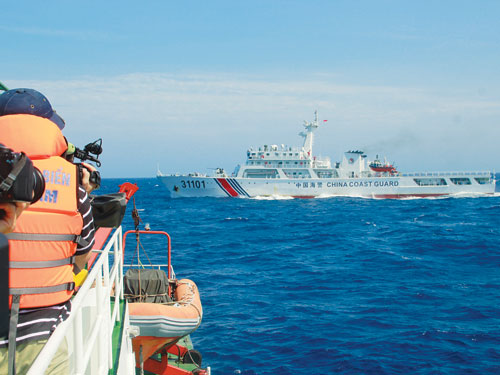He also highlighted that China’s recent acts have seriously infringed upon Vietnam’s sovereignty, seriously violated international law and the Declaration on the Conduct of Parties in the East Sea (DOC), and seriously threatened regional peace and stability.

Prime Minister Nguyen Tan Dung. Photo: VNA
Following is the full text of the interview
Bloomberg :
According to this map, the area that China deploys its oil rig is into Viet Nam’s 200 nautical miles waters as well as close to international maritime. What are the impact to the region and the world if the tension escalates to a conflict?
Prime Minister Nguyen Tan Dung:
Conflict, war! I believe that you can easily imagine its devastating consequences.
If military conflict breaks out, there will be no loser or winner. I wish to highlight that as approximately two-thirds of the global trade in goods are shipped via the East Sea, a single irresponsible act triggering conflict will immediately interrupt this huge cargo flow. As a result, not only economies of this region but even the whole world will be hurt by its unforeseeable consequences.
Bloomberg :
How will Viet Nam respond to China's actions over the oil rig in Viet Nam's exclusive economic zone? Is a military response possible and what is the risk of that?
Prime Minister Nguyen Tan Dung:
We have repeatedly highlighted that the independence and sovereignty of our Fatherland are sacred and inviolable. We will never agree to swap them for any other things. Viet Nam has and will do its utmost to defend the sovereignty over its waters by peaceful means. Over the last month, we have made at least 30 communications with China to demand the latter withdraw its oil rig from the waters under the Vietnamese sovereignty. That is to say more than one communication per day on average.
As for military action, I once again underline that the consistent defence policy of Viet Nam is peace and self-defence. We will only resort to military action when we are forced to opt for self-defence.
Bloomberg :
Will Viet Nam take legal action against China? Is there a discussion about joining the Philippine case against China?
Prime Minister Nguyen Tan Dung:
Viet Nam will resort to every peaceful means to defend the sacred sovereignty over its islands and waters. Legal action in conformity with international law is also a peaceful measure.
Viet Nam is considering this option.
Bloomberg :
What type of that legal action is likely?
Prime Minister Nguyen Tan Dung:
As I have said, Viet Nam will resort to every peaceful means to defend the sacred sovereignty over its islands and waters.
We have prepared all evidence and legal dossiers. What we are considering is the appropriate timing.
Bloomberg :
Viet Nam and China have large trade and investment relationship, how will this incident and the unresolved escalation affect the trade ties?
Prime Minister Nguyen Tan Dung:
We are living in the age of extensive globalization and international economic integration. The whole world has become a single market. Economic cooperation between and among countries is based on market economy principles, equality and mutual benefit. The economic cooperation between Viet Nam and China is no exception. To date, generally speaking, the bilateral cooperation in economy trade, investment and tourism still takes place as normal.
China’s infringement on the Vietnamese waters has to certain extent impacted some sectors of the Vietnamese economy. We have adopted several appropriate solutions in response.
The Vietnamese economy grew by more than 5.4% in 2013. The first five months of 2014 witnessed good progress toward our set targets. The macroeconomy remained stable. Inflation was well kept under control. Foreign reserve increased significantly. Exports surged by approximately 16% and the GDP growth for 2014 is expected to hit 5.8%.
Several days ago in some provinces of the country, the Vietnamese people launched demonstrations against China’s infringement of Viet Nam’s sovereignty. It was regrettable that some demonstrators were incited by individuals with ill intention into breaking the law. We have timely contained the incident and successfully prevented its reoccurrence. The lawbreakers were strictly punished. Viet Nam has also provided timely and effective assistance to the affected enterprises, thus enabling most of them to resume normal production and business activities.
Bloomberg :
At the Shangri-La Dialogue 2013, You had a speech focused on building strategic trust among Southeast Asian countries. Has that been achieved? You also called for the U.S. to play a larger role in the Asia region. What would Vietnam like the U.S. to do generally in countering China 's push into the South China Sea and in regard to the oil rig dispute?
Prime Minister Nguyen Tan Dung:
I underscore that rapid and sustainable economic development will not be possible without peace and stability; and peace and stability will also not be possible without strategic trust between and among countries- the strategic trust that is based on serious compliance with international law and respect for each other’s independence and sovereignty.
Whether strategic trust has been attained in this region, I believe that you must have already had your answers.
The United States is a global power, and also a power of the Asia-Pacific region. We hope that the United States will make stronger, more practical and more effective contributions to peace and stability in the region.
Bloomberg :
When or will you sign legislation raising the foreign ownership limits of public companies? How high beyond the current 49 percent cap will you lift it? In which scenarios would Vietnam consider allowing 100% foreign purchase of Vietnamese companies and banks?
Prime Minister Nguyen Tan Dung:
Viet Nam is restructuring its economy and deepening its integration into the global economy. Viet Nam is now a WTO member, and also a party to various economic cooperation frameworks and free trade agreements with partners around the globe. The country is actively negotiating new free trade agreements, especially the Trans-Pacific Partnership (TPP). Therefore, we will continue to open up our markets, including finance and banking under roadmaps that match the demands of international integration and specific circumstances of the Vietnamese economy.
I wish to emphasize that opening up markets is the must-go path of the Vietnamese economy, and such trajectory has been consistently pursued.
Bloomberg :
Thank you very much!
VNA

